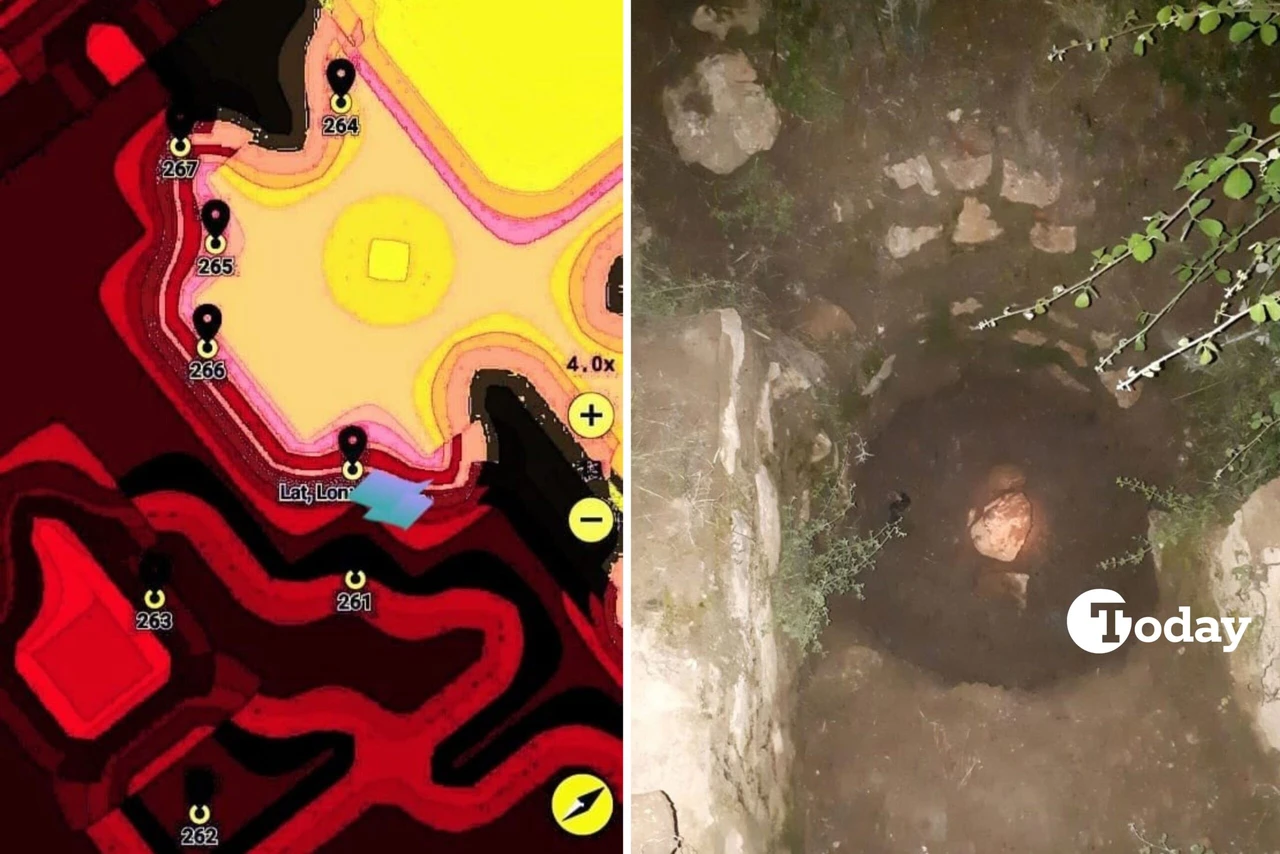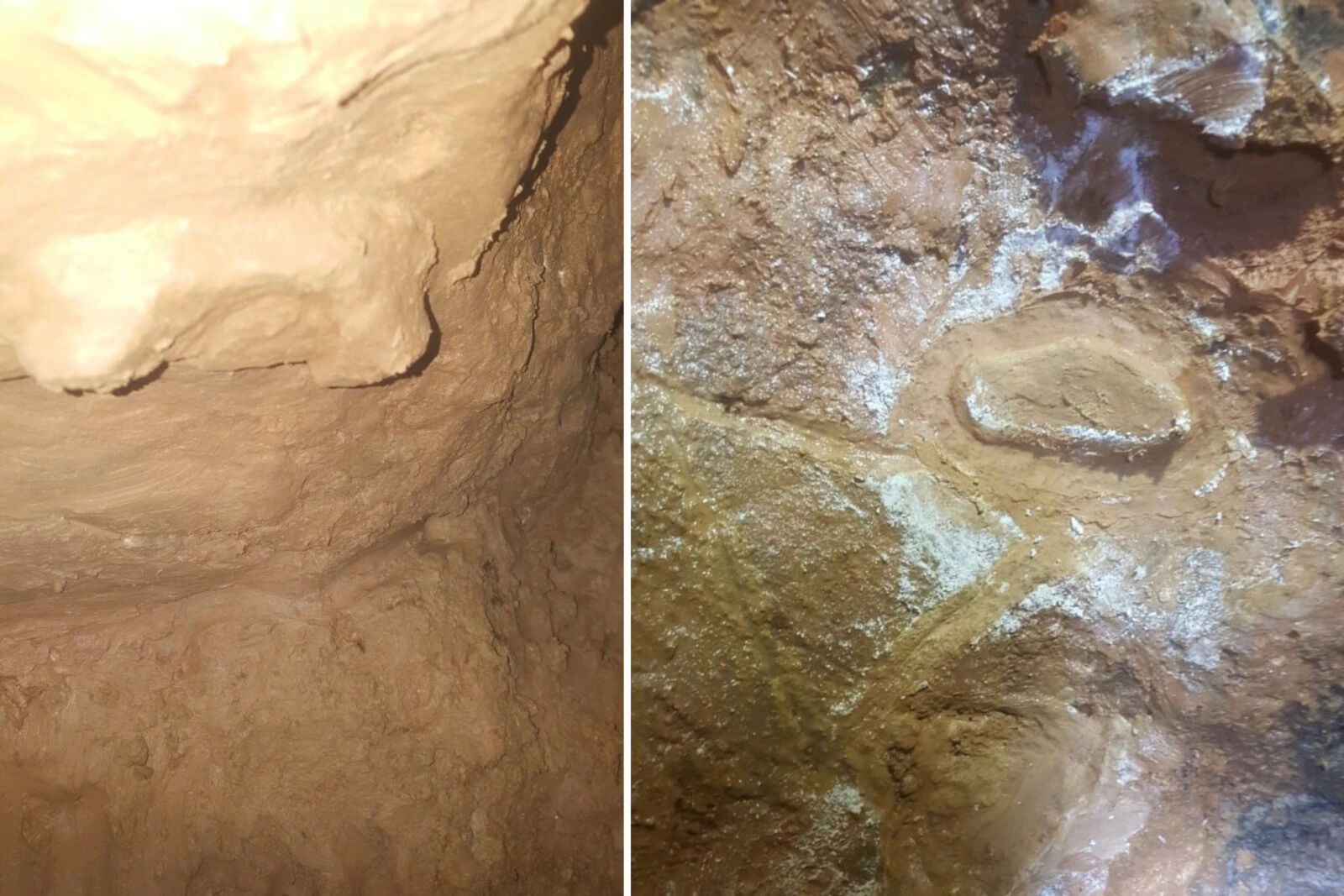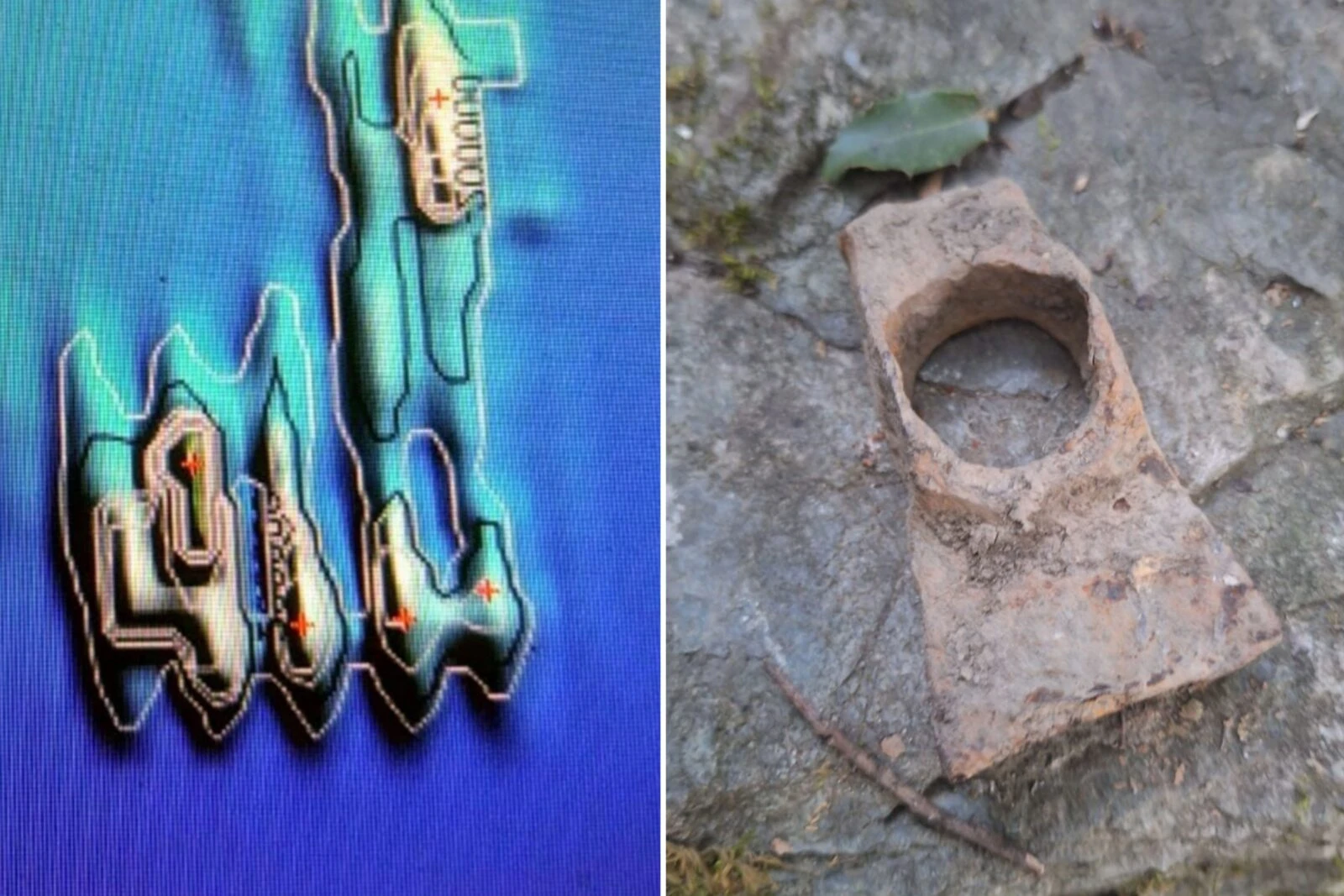Illegal treasure hunter claims to find lost First Council city in Türkiye, demands $50M
 An underground scanning image (L) and a camera image from the discovered site (R) presented to Turkish media by an illegal treasure hunter who claims to have discovered the location of the First Council in the Orhangazi district of Bursa, Türkiye, April 25, 2025. (IHA Photo)
An underground scanning image (L) and a camera image from the discovered site (R) presented to Turkish media by an illegal treasure hunter who claims to have discovered the location of the First Council in the Orhangazi district of Bursa, Türkiye, April 25, 2025. (IHA Photo)
A man from Bursa, Mustafa Uysal, has sparked outrage after claiming to have discovered a secret underground city where he says the First Council of Nicaea was actually held, not in Iznik as history firmly records, but in Orhangazi.
Uysal now demands an astonishing $50 million in exchange for revealing its location, a claim experts and officials have slammed as irresponsible and dangerous for Türkiye’s invaluable cultural heritage.

Reckless statements risk the nation’s archaeological wealth
Despite Türkiye’s strict legal framework for the protection of cultural and natural assets, individuals like Uysal continue to pose a serious threat. His claims, lacking any credible scientific backing, not only endanger priceless archaeological sites but also encourage unlawful treasure hunting that has already caused irreversible damage across the country.
After retiring, Uysal reportedly turned to amateur treasure hunting, engaging in unsanctioned digs.
He now alleges to have found an underground city complete with sarcophagi, corridors lined with mysterious symbols, and what he claims is the tomb of Princess Niken—claims that experts view with deep skepticism.
In a reckless public statement, Uysal said, “This is a place the world’s archaeologists have been searching for in vain. The First Council was definitely not held in Iznik. We found the underground city where it was actually held. There is a room with sarcophagi linked to Mary and Jesus, surrounded by twelve altars.”
“We have sealed it. We want the state to unearth this place and contribute to Türkiye’s economy. My only demand is 50 million dollars. I am talking about a site worth 150 billion dollars if you include its historical artifacts.”
Türkiye’s treasure hunting laws: Protection against looters
Türkiye, with its millennia-old cultural layers, has long attracted treasure hunters. Yet, unlicensed research and excavations have ravaged countless sites, leading to the loss of artifacts considered the common heritage of humanity.
To combat this, the government has introduced strict regulations. The 1983 Law on the Protection of Cultural and Natural Assets (Law No. 2863) mandates that the Ministry of Culture and Tourism must license any treasure hunting.
Furthermore, all discoveries must be reported immediately to the nearest museum directorate or local authorities within three days, and failure to do so carries criminal penalties.
According to the law, treasure hunters are forbidden from claiming ownership over any find. Instead, artifacts are considered state property, reflecting Türkiye’s commitment to treating cultural assets as public goods rather than private wealth.
Under the law, illegal research and excavations carry prison sentences ranging from three months to two years. If cultural officials are involved, or if items are intended to be smuggled abroad, sentences can be doubled.

Irresponsible behavior could cause irreversible damage
Experts warn that Uysal’s claims, whether true or fabricated, can fuel a dangerous culture of unauthorized digs and looting.
Unprofessional treasure hunters often irreparably destroy archaeological contexts in their search for valuables, resulting in the loss of invaluable historical information.
Moreover, the mere suggestion of “selling” the location of an alleged ancient site sets a dangerous precedent, undermining national and international efforts to preserve cultural heritage responsibly and scientifically.
If Uysal’s claims were genuine, he would have had a legal and moral obligation to inform authorities immediately, ensuring the site’s protection and proper archaeological evaluation.
Instead, the attempt to monetize a supposed discovery reflects a gross disregard for Türkiye’s laws and its rich historical legacy.



